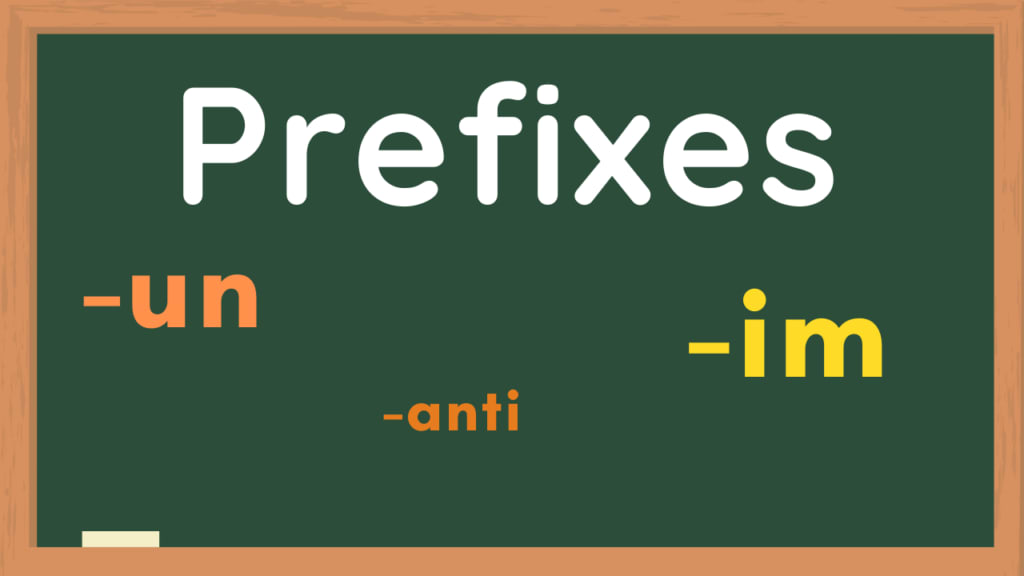
When you are looking to improve your English vocabulary by knowing how to create a negative or neutral meaning, you should consider the usage of changing words by adding -Un, -In, -Il to the beginning of each word to change the actual meaning of it. Unbeknownst to most English learners, the English language has multiple ways of changing a word’s meaning just by adding a few letters to the beginning of the word itself. In this article focusing on the English learning, I am going to go over specific examples of how to change these words and their meaning with -Un, -In, -Il although there are other ways to do that. I’ll save more of these word beginnings for another article but let’s get started with these three I’ve listed above.
To get started, let us look at -Un to change English words. There are several words that adding -un to the beginning of would change how we see that particular word. Here below I will list a few words that -un can be added to and how the meaning of the word changes as a result.
• Unequal (Not equal, not the same)
• Unavailable (Not available, not ready, not accessible)
• Untamed (Not controllable, too wild, or crazy)
• Unimaginable (Not to be imagined, not possible)
• Unbelievable (Defies belief, similar to Unreal)
As you can see from the examples provided, putting -Un in front of the words listed negated things being equal, people being available, animals being tamed, events being believed, etc. If you look at -Un, it is often negative or neutral in its connotation. There are also a lot of similarities between words like Unreal, Unimaginable, Unbelievable, etc. so you can be sure that you can use -Un before multiple words and have the meaning be similar or the same even if the rest of the word is different.
Let’s continue with another word beginner known as -In, which is more neutral than negative but is not at all positive in terms of its total word when you add it as a syllable to beginning of any word. To use a quick example, adding -In to ‘different’ would make the actual meaning to indicate that you are neutral or not caring about one outcome or another. If you are indifferent to someone or something, then you are neutral to that someone or something and could care less about what is going on for the rest of that sentence or expression.
This tends to be the case with other words that start with -In as well and I will point out each of their meanings to be similar in terms of overall neutrality or indifference below in the list for -In words.
• Inarticulate (Unable to be understood, confusing)
• Inhospitable (Not comfortable, lack of good accommodations)
• Intolerant (Not fair to others, prejudiced, not accepting)
• Indisposed (Not available, out of commission or service)
• Insupportable (Not able to provide justification, lack of support or effort given)
Given these examples for -In, you can see that a lot of the words are not just neutral but also negative as well. -Un words tend to be wholly negative in almost all definitions while -In words tend to be a mix of neutral and/or negative in their meanings. Still, being able to add an -In to ‘supportable’, ‘tolerant’ ‘hospitable’ will make your vocabulary that much better by being able to know the difference in English with how to make a word become negative if needed rather than just positive in its meaning when you consider the meanings of words such as ‘tolerant’, ‘supportable’ or ‘hospitable.’
Lastly, while -In and -Un are similar, you cannot make up words where you change the -In for -Un or vice versa. If you change them, they will not be grammatically correct even if the meaning does not change. You must be sure that you do not put an -Un in front of ‘Articulate’ by accident or a ‘In’ in front of ‘Imaginable.’ To master this kind of vocabulary, you should encourage yourself to make a list of English words that begin specifically with -In as well as words that specifically begin with -Un too to not make silly mistakes when it comes time to write them in sentence or use them in conversation.
To finish off with the last of the word beginners, -Il is a commonly used one similar to -In or -Un to negate a word or convey a serious issue or problem that can arise before the main word itself. For example, ‘legal’ means something in society is permissible and can be done without error or penalty. If you put an ‘Il’ in front of that word, then you are forbidden to take that action or do that thing in society, or you will face the consequences if you are found to be guilty of that action. ‘Illegal’ means what is not permissible by law while ‘Legal’ is the opposite in that it is an action that is permitted by the society in question, and which does not carry any punishment such as a fine or imprisonment.
Let us look at other examples where ‘Il’ when placed at the beginning of an English word has a similar effect that ‘Illegal’ would have when it is placed together.
• Illegitimate (not authorized by law or not in agreement with rules or standards)
• Illiterate (Not able to read or understand how to write)
• Illogical (Not comprehensible, without logic or reason)
• Illusive (Not able to be captured, contained, or deceptive by nature)
• Illiberal (Undemocratic, authoritative, unprogressive)
Not every word beginning with -Il will have a negative or neutral meaning but there are a lot of them which will change the meaning of the main word to have the opposite meaning after it is written. -Il, like -Un or -In, carries the weight of making words that much different just by changing the beginning of the word with those two letters.
For the average English learner, having lists of the vocabulary words that begin with either -un, -in, or -il is an important step towards improving your knowledge in this proficiency area. Once you understand how the meaning of the word(s) change as a result, you can then be able to use it yourself in a sentence, either spoken or written. Once you memorize the words, the meanings, and the context, you will be well on your way to becoming that much more proficiency in the English language. There are other word beginners to cover besides these three important ones so be sure to check out another article in the future, which will cover this topic within English vocabulary.
About the Creator
Ben W
Ben helps students from around the world to improve their English language skills. Ben enjoys traveling around the world, developing his writing abilities, and reading good books.






Comments
There are no comments for this story
Be the first to respond and start the conversation.